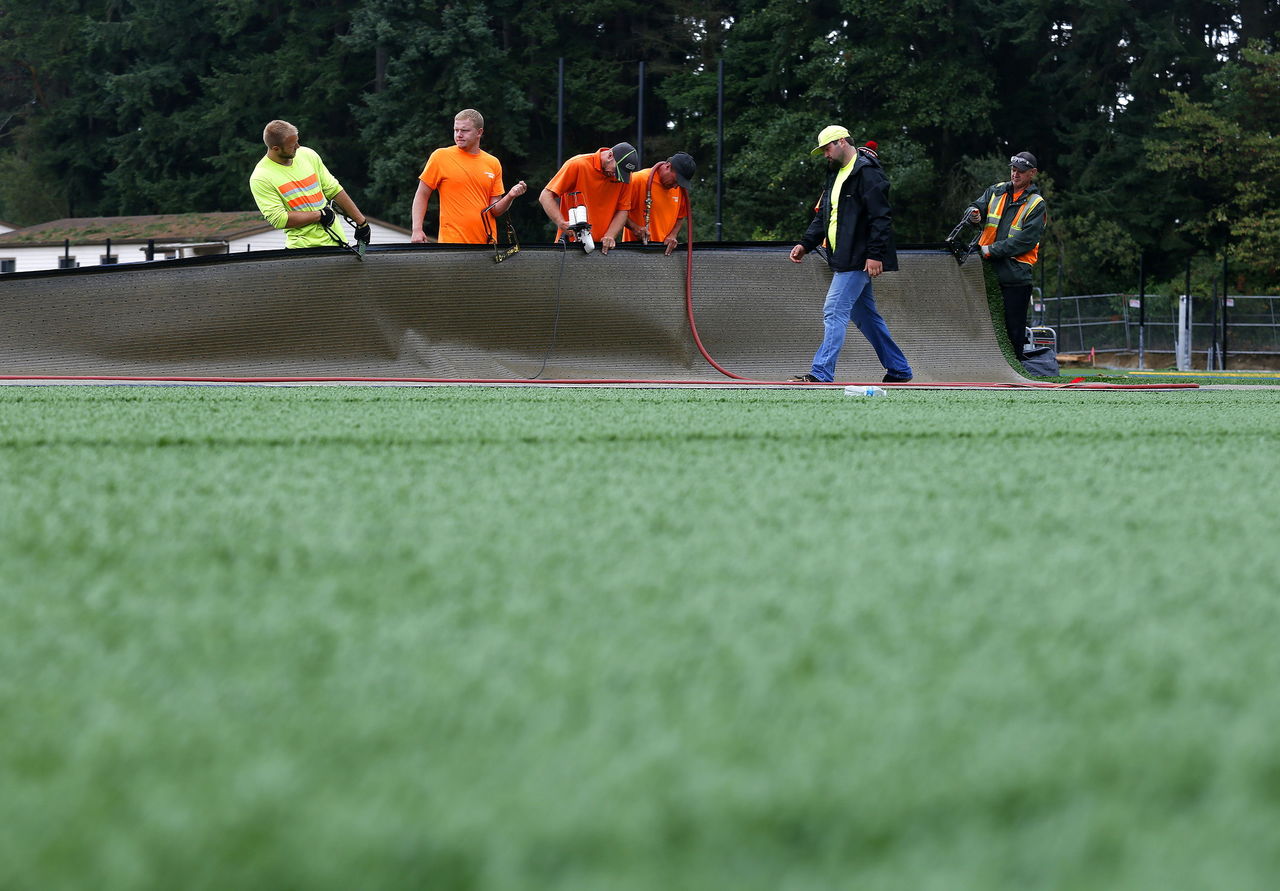The state Department of Health is investigating whether soccer players who competed on crumb rubber fields have higher rates of cancer.
Some of the cases involve soccer players between the ages of 5 and 24 who played in Washington and were diagnosed with cancer since 2002.
The study comes as concern mounts both locally and nationally about a possible link between playing on the fields, which are made from ground-up used tires, and some young soccer players being diagnosed with cancer.
Opponents of crumb rubber sports fields point to a list of hazardous chemicals in tires, including heavy metals and substances linked to cancer.
Amy Griffin, a University of Washington soccer coach, received national attention in 2014 after compiling a list of young people who played on the artificial turf who were later diagnosed with cancer.
During a hearing last month in Olympia, she said the list has now grown to 209 such athletes, of which 160 are soccer players and of those 97 are goalies.
One of the names on the list is Austen Everett, who trained with Griffin. Everett was a goalkeeper for Seattle’s Bishop Blanchet High School and played on teams at the University of California Santa Barbara and the University of Miami in Florida. She was diagnosed with non-Hodgkin lymphoma as a college junior in 2008. She died four years later when she was 25 years old.
“I have no doubt that crumb rubber played a role,” said her mother, June Leahy, of Seattle.
The University of Washington’s School of Public Health asked the state to take a look at the information that Griffin has collected. Her list includes 45 Washington residents who played both recreationally and year-round. The federal Centers for Disease Control and Prevention is providing some technical assistance to the state.
Scientists are piecing together information about each case, such as the person’s age when they were diagnosed with cancer and which type of cancer they had, said Cathy Wasserman, a state epidemiologist for non-infectious conditions.
One of the cases dates back to 1994. The most recent are from last year. Among the types of cancer the students were diagnosed with were leukemia, and both non-Hodgkin and Hodgkin lymphoma.
“There’s a variety of cancer types and ages,” Wasserman said. “We’re covering a whole lot of years.”
Some of the work involves collecting more detailed information on each case, Wasserman said. They also have to sort through which cases involve recreational players and which involve those who played soccer year-round, with more exposure to the crumb rubber fields.
Work on the study is expected to continue for another three to six months.
In Snohomish County, opposition to crumb rubber athletic fields has been greatest in Edmonds. It was triggered by a $4.2 million Edmonds School District project to construct two synthetic turf athletic fields at the former Woodway High School. The fields opened in September, but the controversy has continued to simmer, led by parents.
In December, the Edmonds City Council approved a ban on the installation of synthetic turf playfields made from crumb rubber on any publicly owned athletic field until July 11, 2017. The action covers School District-owned properties.
Jefferson Ketchel, environmental health director for the Snohomish Health District, said that so far there’s no scientific proof showing crumb rubber fields could harm those playing on them. “There does not appear to be a public health risk, but more research is needed,” he said.
“I don’t want to minimize risks to human health or people getting cancer,” Ketchel said. “If future science tell us there’s a connection between illness and synthetic turf, I want to prevent that.”
Ketchel said that the crumb rubber controversy is part of a much larger national problem. The federal law regulating toxic substances is 40 years old. That means the burden is on the government to prove that a product causes harm either to human health or the environment, he said.
“We should know the safety of a product before it’s placed on store shelves or used by children,” Ketchel said.
His advice to parents with concerns about crumb rubber fields is to have their children wash their hands after playing on the fields and before eating; change out of their sports clothing before entering their home; shower after playing on the fields; carefully clean any cuts or scrapes from playing on the fields; and if they get any of the field’s tiny rubber particles in their mouths, to spit them out.
Sharon Salyer: 425-339-3486; salyer@heraldnet.com.
Talk to us
> Give us your news tips.
> Send us a letter to the editor.
> More Herald contact information.

























